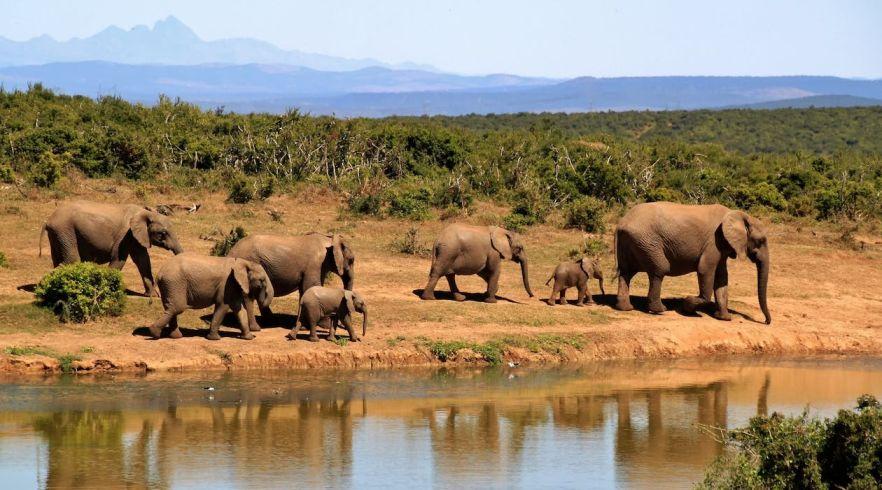Ecotourism and eco travel are becoming increasingly popular globally, and new markets for ecotourism are developing constantly. Around the world, you can find plastic substitutes, vegan eateries, eco-resorts, sustainable goods, and natural toiletries.
Today, with the threat of pollution, forest fires, and rising sea levels, it is crucial that tourists exercise responsibility everywhere they go and consider ecotourism.
This eco-friendly travel guide will walk you through the steps involved in going green when travelling.
What Is Ecotourism?

Image Source: Freepik
The practice of ecotourism encourages a greener kind of tourism to support future sustainable travel. Future travellers and distinctive cultures from throughout the world will be able to travel for many generations to come because of this.
By leaving no waste and adding no new pollutants to the environment, responsible tourism means lowering that footprint to zero. This applies to the goods you buy and carry, the meals you consume, how you take care of yourself in the bathroom, how you travel, and even whether or not you stay at an eco-hotel.
Why Ecotourism Is Vital

The number of people who travel is growing rapidly. According to Earth Day Network (2018), 1.1 billion people travel abroad annually, having a substantial impact on locations. This could have both good and bad effects.
The people who live there and the visitors who follow in your footsteps can continue to appreciate the areas you visit, though, if you keep eco travel in mind wherever you go, which is simply about respecting the land and seas around you. Without ethical travel, the industry will gradually disappear.
The biggest threat to moral tourism may be overtourism.
This problem can be greatly helped by ecotourism. Travelling on an ecotourism itinerary lessens waste and carbon emissions, allowing a busy area to breathe and the locals to avoid suffering from overtourism.
Image Source: Pexels
Ecotourism Principles
We shall discuss the guiding principles of the ecotourism sector now that we have examined what ecotourism is and its importance. The main goals of ecotourism are community interaction, environmental protection, and environmentally friendly travel.
Despite not placing a strong emphasis on environmental protection, education, social and cultural engagement, or having a minimal negative impact on the places visited, many tour packages are nonetheless referred to as “eco tours.” You can check out these eco-tourism options in India.
Here are the fundamentals of ecotourism so you can determine whether tours are genuinely eco tours:
Increasing Cultural and Environmental Awareness and Respect
Sensitising people to environmental issues, raising awareness, and enticing them to consider how their travels may affect the places they visit are the main goals of ecotourism. For tourists to have a deeper knowledge of their experiences, other operators additionally provide interpretive tours, naturalists, and guest lecturers.

Image Source: Pexels
Provide Visitors With Memorable Interpretive Experiences
Even so, ecotourism aims to have a positive impact on the environment and local populations while minimising any negative ones. Any tour should be planned such that the visitors will have a good time.

Image Source: Pexels
Giving Conservation Direct Financial Benefits
Ecotourism seeks to support local conservation initiatives by attracting financial rewards as one of its key goals. One method that visitors can aid in the preservation of the environment and wildlife is by visiting national parks. More revenue-generating opportunities that are more environmentally friendly alternatives to urbanisation, deforestation, unsustainable agriculture, and poaching are produced as ecotourism becomes more important and is practised.

Image Source: Pexels
Ecotourism Can Reduce Our Environmental Footprint:
An ecological footprint is the measurement of a person’s or an organisation’s negative impact on the environment. Because of our daily actions, we leave behind both a carbon footprint and a greenhouse gas footprint. The good news is that by engaging in ecotourism, we may easily lower our carbon footprint or ecological impact.
We must travel in order to promote sustainable tourism, and this increases our carbon footprint. This cannot be helped, but we may practise reducing our travel requirements by learning different local riding techniques or by simply exploring the area on foot.

Image Source: Pexels
To sum up:
It is important to be aware of our surroundings when travelling, particularly when you are in an area where there are some local communities. This is one way that we may support the preservation of the regional natural system in that region.
We will understand how crucial it is to practise environmental awareness as we observe the natural world around us. People can raise awareness of the neighbourhood where they reside by taking part in eco-friendly tours and vacations.










